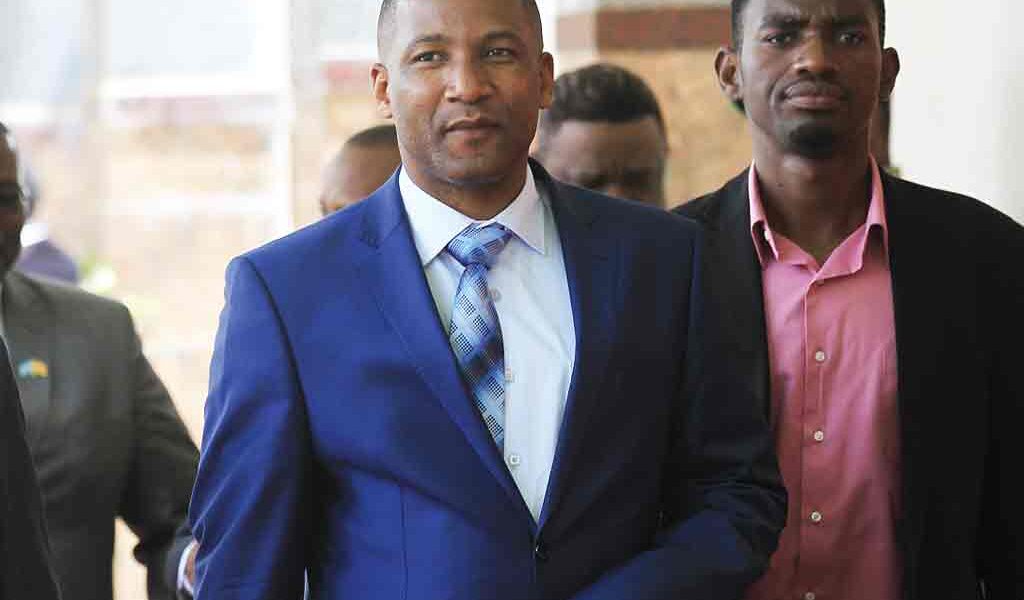While disdain sums up treatment of the two men credited with bringing Botswana’s bickering opposition parties into the credible force that is the UDC, Mpotokwane and Maphanyane say they are at peace with the cold turkey. Staff Writer TEFO PHEAGE reports
Convenors of the Umbrella for Democratic Change (UDC), Lebang Mpotokwane and Emang Maphanyane, have been excluded from meetings of the National Executive Committee (NEC) of the opposition coalition over what they believe was their insistence on discussing a report detailing how the Botswana Congress Party (BCP) should join the UDC.
The two men – both of whom are members of the National Executive Committee of the UDC – say they have not been invited to NEC meetings since 2017 and are consequently in the dark about the state of affairs at Botswana’s official opposition party.
They blame UDC president Duma Boko and other members of the coalition’s executive for this and other ills that bedevil what is essentially the fruit of their brow.
However, at the UDC, spokesman Moeti Mohwasa says in terms of the new constitution, the two men are no longer members of the NEC. In an interview, Mpotokwane said things changed when the UDC wanted to hurriedly bring the BCP into the coalition.
Both he and his fellow convenor, Maphanyane, say they were never told that they were no longer members of the NEC. “We insisted, as we do today, that there is a report – called the Dibeela Report – that should pave the way to that,” Mpotokwane said.
“We later realised the comrades were not eager to discuss the report and subsequently that they had brought the BCP in without our knowledge. Since then we have never been invited to NEC meetings inspite of us being its members constitutionally.”
Mpotokwane said they have never protested that they may no longer be needed and that they are quite at peace with this turn of events. Even so, they will always be available should the UDC need them again, he added. “We will be glad to finish what we started,” Mpotokwane said.
At the UDC, spokesman Mohwasa does not deny the allegations but says the issues being raised by the convenors are stale and were adequately dealt with in the past. “They have been overtaken by events,” Mohwasa said. “Kindly familiarise yourself with the decisions of the NEC in terms of the transition clause which led to admission of the BCP into the UDC. Further, make reference to the case brought by the BMD against the UDC.”
Mpotokwane considers the issues as being more administrative than legal. A UDC conference held at Boipuso Hall over two years ago accepted participation of the BCP and composition of its NEC, Mohwasa said. He differs with Mpotokwane over the Dibeela Report and dismisses it.
“There is no Dibeela Report that we are aware of,” he said. “Maybe you wanted to talk about the report that was to be worked on by Comrades Kesitegile Gobotswang and Mpho Dibeela as mandated by the ‘old’ UDC and the BCP. I am not aware of its submission.”
Regarding Mpotokwane’s assertion that he and his fellow convenor, Maphanyane, are still members of the NEC, Mohwasa responded: “There is no provision for inclusion of convenors in the constitution.”
The president of the BCP, Dumelang Saleshando, who is also the vice president of the UDC, shares Mohwasa’s views and says he is “not aware of any concerns by the UDC conveners”. Saleshando told The Botswana Gazette that the issue of membership of the UDC was long settled by the courts when the BMD attempted to challenge its expulsion from the coalition last year.
Meanwhile, Mpotokwane said that he had met with Boko and Saleshando but was not at liberty to discuss details of the meeting.




